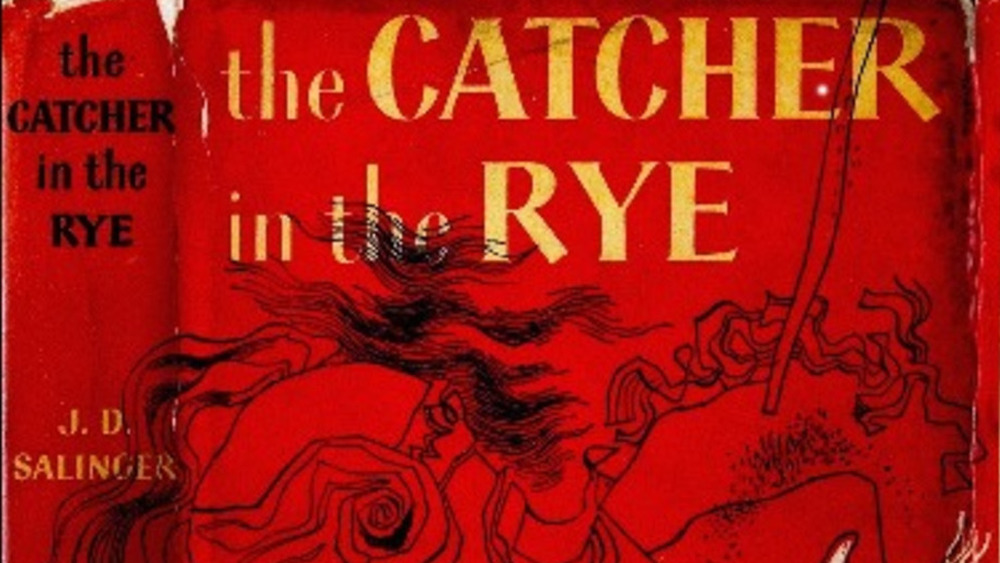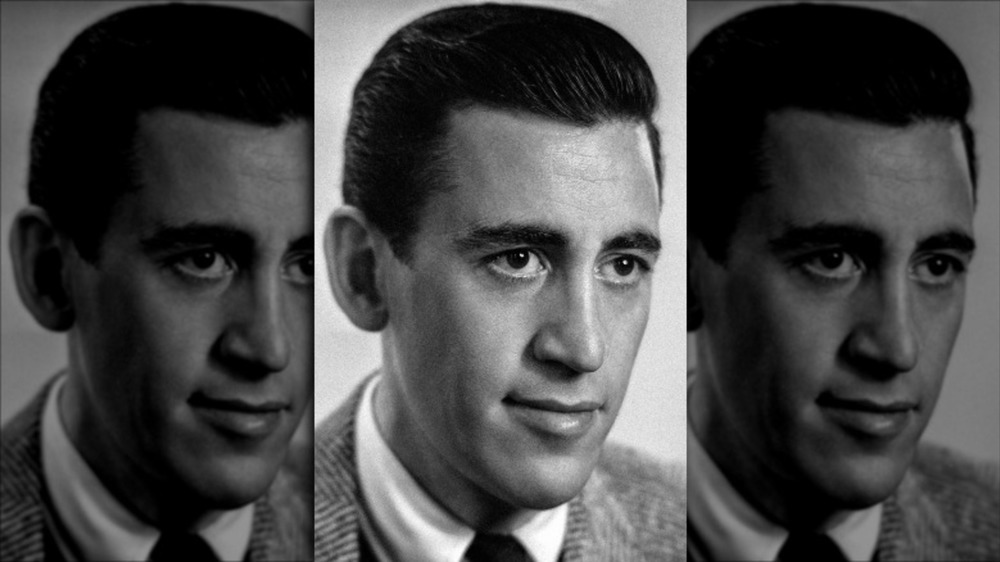The Surprising Thing J.D. Salinger Did While Writing 'The Catcher In The Rye'
As a young man, J.D. (Jerome David) Salinger, like his famous protagonist Holden Caulfield, was somewhat adrift. Per Mental Floss, while Salinger was undoubtedly talented, he bounced around three different schools as a teenager, attending New York University and Ursinus College before finally settling down at Columbia University in 1939. His aimless drifting came to an end with the encouragement of a Columbia professor named Whit Burnett, who recognized Salinger's distinct talent and became something of a literary mentor to the young writer.
Under Burnett's tutelage, Salinger committed himself to writing seriously, and soon, his work was being published in magazines like Story, Collier's, and the Saturday Evening Post, per Biography. In 1942, however, Salinger experienced another disruption when he was drafted into the United States Army to fight in World War II. But he didn't let that derail his burgeoning literary career. Instead, he took his writing with him, steadfastly working on the pages that would become The Catcher in the Rye, even while fighting in the front lines at the Battle of the Bulge and storming the beaches of Normandy, according to Vanity Fair.
Salinger's service in World War II influenced his writing
In fact, Salinger wrote very consistently, even in the midst of all the fighting. During the war, he published several short stories, such as "Soft-Boiled Sergeant" and "Last Day of the Last Furlough," which were heavily influenced by his experiences as a soldier. His service came to an end in 1944, and The Catcher in the Rye was published in 1951. His daughter reported that Salinger rarely talked about his time in the service, but "the experience of war gave his writing a depth and maturity it had lacked; the legacy of that experience is present even in work that is not about war at all," per Vanity Fair.
However, the maturity and depth came at a heavy personal cost. Salinger, who was deeply affected by the horrors he had witnessed in the war, suffered from PTSD that was so severe he had to be hospitalized for some time after suffering a nervous breakdown upon returning home, says Biography. In his later years, Salinger became somewhat reclusive, keeping to himself and avoiding giving public interviews. However, while he might not have liked to speak in public, his literary legacy more than speaks for itself.

